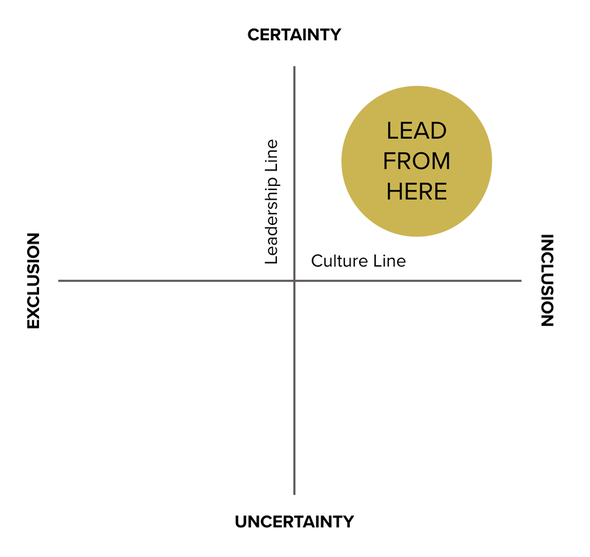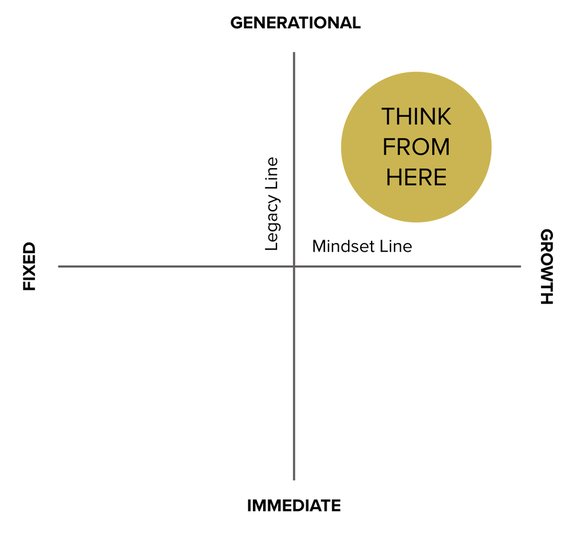|
An Interview with Joran Oppelt by Ashley Preston
There are a lot of misconceptions around success. The dictionary describes it as “the correct or desired result of an attempt,” or “the fact of getting or achieving wealth, respect, or fame,” but how it is measured is highly subjective to each person pursuing goals. So the question becomes, “how should we think of success?” That’s why I sat down with Joran Oppelt, the founder of Illustrious Consulting and an international speaker and author to get his thoughts on what “success” really is, how it is achieved, and what kind of mentality we should approach it with. Here’s what he had to say about his journey, the biggest lessons he’s learned along the way, and some of the most common misconceptions he’s seen about what it takes to be successful. Q: How can someone find success? A: There might be a formula for sales, there might be ways to template out content, there are aspects of a business you can replicate and train, but no one can just hand you the roadmap to a successful business. I wish people knew there are no gurus or experts that can turn them into an amazing CEO or business owner or manager. People are making things up as they go all the time – they’re building their airplanes in flight. Relying on a step-by-step process pigeon-holes you into a certain way of doing things. The best entrepreneurs accept that there isn’t a precise process, there isn't an exact framework. It doesn’t work that way. Q: Why is it important to find your own formula for success? A: Everyone has different markets and segments, so one-size-fits-all approaches aren’t going to solve your problems. Success is found by those who are willing to go out on a limb. You give your power away when you allow yourself to think that one person’s book or system can help you hit your goals. That puts your chance to succeed outside of yourself. You’re not taking responsibility for your own future. You're avoiding experimentation, which is a vital piece of this whole puzzle. It’s how you learn important lessons and collect valuable data. When everything is an experiment, all you get is results. Q: How do successful people talk about their endeavors? A: When I hear successful people talk about their wins, I hear how they worked to make their ideas fit – to get over whatever hump they had to – and come out stronger for it. They are unafraid to learn how to create a sales process or a marketing campaign. They are willing to experiment and to fail and to learn. It’s about seeing themselves as leaders. Q: What kind of mindset do you need to be a success? A: I’m a big believer in “how we do anything is how we do everything.” There is harmony and balance in the cosmos. At the micro level, if you’re intentionally steering the ship, those micro-adjustments will make a difference in where you go. Are you messy? Are you late? Did your team hit its goals this year? Did you hit your goals this year? Think about your role in your own business and in your own life. I'll bet that you can draw a straight line from the attitude you have when you wake up to how you show up for your team or business to the results you see at the end of the quarter. Q: What do you hope to instill in your coaching clients in order for them to own their own success? A: My biggest coaching breakthrough is always when the client sees themselves as the kind of person they want to be. They can’t do that unless they put the work into changing their habits and thought patterns. Once we understand the interconnectedness of intention and presence and strategy, then we have something we can build from. That mindset -- that kind of vision -- gives you a direction in which to experiment, the ability to see failure as an opportunity, and the opportunity to be reborn every day as someone who transcends their problems and includes what they’ve discovered along the way.
0 Comments
Guest post by Ashley Preston You did it. You finally took a chance and hired a coach to help you. They are promising to help you turn your life and your business around, but as you work with them, you can’t help feeling like something is a bit off. Are you having buyer’s remorse? Or is it something else? Are you comfortable talking to them? Are they making it easy for you to open up and share what you need to with them? Or do you find yourself hesitating to use the services you paid for? If you’re having doubts, you might want to ask yourself if you’ve hired the right coach. Here are five signs it might be time to look for the exit. 1. They Bully You or Harshly Judge You You hired a coach because they could help you in areas where you admitted you’re struggling. They are there to encourage you; not make you feel guilty or dumb for not knowing something in the first place. No one should make you feel inferior for owning up to your own shortcomings and getting help to improve those personal limitations. That’s how we learn and grow as people. If your coach is making you feel like you’re inferior, if they are talking down to you, or dismissing your concerns without valid reason, you’re not dealing with the kind of person who should be working as a coach. You can’t solve your real problems when you can’t talk about them without fear, and you can’t be truly vulnerable with someone who doesn’t show you the respect you deserve. 2. They Minimize Your Experience, Education, or Training Coaching takes a great deal of compassion, empathy, and patience. It requires the coach to step into your shoes and understand where you’re coming from. A good coach will point out your strengths and remind you how far you’ve already come. That coach would embolden you to use whatever tools are at your disposal in order to move forward with confidence while helping you sharpen up other areas in your life so you can be even more effective. However, if you have a coach who is telling you that because your training or experience didn’t come from the “right” place, or it’s not valid, then you have a crappy coach. It doesn’t matter how you learned what you know. As long as you have your facts straight and are confident in your experience, your perspective is valid and your knowledge is valuable. Don’t let anyone tell you otherwise, especially the coach who was hired to highlight what you bring to the table. No one gets to dim your shine! 3. They Tell You What Kind of CEO You Should Be Did you build a business? Did you make decisions and sacrifices to get where you are? Did you create something and see its success bloom? With all that experience, you have developed your own style of work and management. While coaches can help you reflect on parts that might not be working, or help you see some fresh perspectives that you haven’t considered, it is not your coach’s job to change everything. Why fix something that isn’t really broken? Don’t trust a coach who can’t see your leadership potential and success. A good coach will work with you to create a better mindset so you can be the best version of yourself, not tear you down and rebuild you from the ground up. Walk away from the coach who makes you feel like a terrible CEO when it’s clear that most of what you’re doing worked long before they walked into the picture. 4. They Tell You They Know Exactly How to Fix Your Business One size doesn’t fit all. Some coaches want to believe that a one-size-fits-all approach will work, but it is simply a lazy approach that doesn’t take into account the complexities of your operation or the free market. While a good coach can provide feedback, structure, and advice, these things should act as guidelines. You should have the room to ultimately make decisions that fit your own business without feeling guilty or stupid for doing so. If your coach is saying things like “just trust the program, it works for everyone” there’s a good chance that their system isn’t battle-tested, and they don’t understand the importance of giving you the power to make the choices that will ultimately serve your company best. Only you will know what that is, and a good coach will know when to encourage you to do so. 5. They Bombard You With Too Much Information You need to walk before you can run. A coach is there to develop your potential. A good coach wants to facilitate the learning process by challenging your thoughts and creating an environment that enables you to take it all in. They know that you should master the fundamentals before moving on to more advanced routines. Good coaches care about how much you get out of the program. A bad coach, however, will likely throw a massive amount of information at you, sometimes in no particular order. They do so because oftentimes it makes them feel smart, and if you can’t take it all in, then it’s not their fault that you don’t succeed. It is a lazy approach that leaves you wanting. If your coach isn’t taking the time to explain things, and if they aren’t giving you information that is digestible, you’re not going to benefit from the program like you should. There Are Too Many Coaches Out There. Don’t Settle for Bad Coaching. You should get what you paid for. You should feel supported and seen by a coach. You should feel like they are there to help you. You should feel like they are learning from you as much as you’re learning from them. You should be able to trust them and their vision for you. If you don’t feel that way about your current coach, then it’s time to make a change. Don’t settle for less than what you deserve. Contact the team at Illustrious, ask about our Amplified Executive Coaching program, and let’s get you back on track with someone in your corner who believes in you.
Great leaders hire great coaches.
Over the last 7 years, I have had the honor and privilege to coach some of the most gifted, passionate and powerful business leaders — from other coaches to small business owners to Chief Innovation Officers. Coaches don’t need to understand their clients or the business, they need to believe in them. They need to see the utmost potential in their client and identify the growth and development opportunities for that executive to leverage. People hire coaches for a reason. Some of my clients were at a crossroads, overwhelmed by uncertainty while trying to navigate their business at the length of a flashlight beam in the darkness. Some of them were stuck — immobilized with fear and overwhelm because of financial pressure or because they were comparing themselves to others. Some were growing so fast that they were sickened by their own velocity. Some were bobbing in uncharted waters, depressed, isolated, and needing physical contact or someone to talk to. Some had found success and simply wanted to find ways to give back to their community or show up as a better leader. In every case, we talked about it. I asked questions. I noticed where topics were avoided, or where their body language shifted, or where they simply lacked the belief in their own power and agency. And then, I asked a different question. Each time, they came away with some kind of insight and commitment to change -- one massive action (or small, next, best step) that they could take toward growing their business or becoming the visionary leader that they were meant to be. Here are the top 8 areas in which I’ve seen clients move the needle, with sometimes game-changing breakthroughs. 1. SELF CARE An insight into self-care may be as simple as “I need to have more fun!” Other times, the client has realized “I need to take care of myself otherwise I can't help anyone else.” I’ve also heard clients say, “I’m the one creating all of this pressure on myself.” This is important because they have realized it is their own hand on the levers and gauges creating the tension and conflict within not only themselves but their relationships. One client, who had been quarantined during the pandemic, was so affected by the isolation that she couldn’t focus on her business at all. I could see in her downcast eyes and her buckled shoulders that she was sad. I could hear in her voice (esophageal constriction and vocal fry) that she was weak. By the end of the call we had identified a new, very specific, goal: “I am starved for touch so this week I will schedule a coffee with my friend and hug them for at least 20 seconds.” *Coaches are not therapists. We don’t look back at wounding, we look forward and focus on goals. If a client displays symptoms of depression it is our responsibility to refer them to (or encourage them to seek out) a clinical approach. 2. MINDSET Sometimes clients forget how amazing they are. They forget everything they’ve accomplished or only remember the last thing they did (the play before the timer ran out, the last speech of the campaign). Imposter syndrome can creep in and their mindset may move from a dynamic, growth state to rigid and fixed. By reminding clients how amazing they are, and inspiring them to affirm their attributes or accomplishments aloud (sometimes very loud), they can turn that mindset around. I’ve heard things like, “Wow! I’ve done some amazing things in my life and I need to remind myself what a badass I am.” One client, who doubted their worthiness, pushed back on her own negative self-talk saying, “No. I deserve to make good money. I want to share my business and my mission with the world. In order to make that happen, I need a bigger platform. So I need to keep suiting up and showing up.” 3. PERFECTIONISM / FEAR Resistance feeds on fear. Recovering perfectionists will tell you they deal with a chronic and crippling fear of failure and disappointing others -- that they simply cannot launch version 1.0 because it won’t be good enough. They may say they have “high standards” and that their superpowers lie in “planning” and “thinking things through.” The coaching goal is not to make the client smarter, but more effective. And that requires thinking and action. I like using the analogy of the sea and the stars. The sky represents perfection. We can gaze upon it from afar, appreciating the beauty of our sunsets or the splendor of the Milky Way. We can use the North Star to guide us and chart a clear course. The waters we’re on, however, are choppy -- tossing us back and forth, threatening to swallow us whole. The boat we’re sailing is constantly being rebuilt and repaired. Life (and your experience or interpretation of it) is imperfect. Don’t confuse the water with the stars. The best you can hear from a client is that “expecting perfection is unrealistic and unfair to myself and others.” 4. TIME MANAGEMENT / STRATEGY The brain is not designed to hold all of your appointments and deadlines. It is not intended to retain your annual strategic plan or your team’s objectives and key results. That's what mark-making and visual tools are for. Write that shit down. The most surprising and staggering observation from my years of coaching is the amount of business owners and executives who don’t have a handle on their schedule or their plan. Some are wasting time where they shouldn’t. (“If you’re saying yes to this, what are you saying no to?”) Some don’t use a calendar or they use too many. Some use a calendar for their business, but not for their family, leaving their spouse and children feeling stranded, angry, and confused. When we break the big thing into smaller things, I’ve heard clients say, “That doesn’t feel intimidating. My brain can handle it when it’s broken down into smaller chunks.” For small business owners, this is vitally important. I’ve heard them say things like “I need to create a visual sales pipeline to track my leads so that opportunities stop falling through the cracks.” When it comes to time management, I do a happy dance every time I hear a client say, “I will buy a planner and start writing down my commitments” or “I will look at my Google Calendar every morning so that I feel like I am more in control of my day.” 5. STORY It’s important that my clients know what story they’re telling. I do a lot of StoryBrand workshops, helping organizations put their client in the center of the story, elevating their customer as the hero, and showing up as their guide. We talk about the work of mythologist Joseph Campbell and novelist Kurt Vonnegut. We talk about The Hero’s Journey and the shapes of stories. When coaching clients consider the beginning and middle of their story from the outside, it’s sometimes easier to imagine where the ending should logically take them. I’ve heard clients have major insights such as, “Oh. I’m not the Hero at all. I’m the Oracle.” I’ve also heard them say, “I’m further along in my journey than I thought I was” and “All the ingredients of hope and change are in my story. I just need to get better at telling it.” One client decided to tap into her own history as a survivor of abuse in order to help others tell their story and grant them the power of choice. She said, “So many people feel like they don’t have a choice. If I can create choice for others in restricted spaces, there is unlimited potential.” 6. MARKETING / SALES From writing polarizing copy to creating compelling content, marketing is something I love helping my clients think about. I spent over ten years leading a marketing team in the media industry. Inbound marketing, advertising, and event activation/sponsorships are in my blood. One of my clients was struggling to build an annual content calendar and had brainstormed a bunch of ideas she thought were failures. She had been focused on generating one great tagline to describe a year-long program and had what she thought was a list of 10 garbage ideas. I asked her to read them to me. One after another she said the most amazing things that left me wanting to learn more. I didn’t hear a list of slogans or taglines, but a list of succinct, compelling topics. They were all the things she wanted her clients to learn. I told her that she was correct -- she had failed to write a tagline, but she had succeeded in writing 10 of the 12 monthly themes for her content calendar. She only needed two more. Her jaw dropped. “You’re right! These are great! Each one of these could be a monthly theme that includes a live video, a blog post, a newsletter, a guest interview on my podcast, you name it.” Another client admitted to “getting awkward” during the sales process -- usually right after telling her prospect the cost of her services. “I spend all this time building rapport, and then after I say the dollar amount, I get quiet and business-like and something changes,” she said. “I know they can feel it.” “Why on earth would you shift your approach halfway through a sales call,” I asked. “Is it because you switched from words to numbers?” “No,” she laughed. “Is it because you think you’re charging too much?” “No. In fact, I could probably raise my rates.” “Then what changed? What’s different at that moment,” I asked. “I’m scared,” she admitted. “For the first time in the conversation, I’m afraid they’ll say no.” After that, we found various ways for her to release the pressure and expectations she put on herself going into each sales call as well as to keep her energy consistent when talking about money. 7. GROWTH Some of my coaching clients have felt like they are “drowning” in the rising waters of change or queasy from the speed at which the business is scaling. Growth is change and change is hard. There are three types of change -- developmental (when things naturally grow, unfold or evolve), volitional (the boss has updated our sales goal, so we need a new strategy) and circumstantial (we couldn’t have predicted that the volcano would erupt, but it has, so now we run). When navigating growth, it’s important for most of my clients to know who or what is causing the change, and whenever possible, have agency or a sense of control over the direction. I’ve heard clients say “I need to reach outside my comfort zone” when skilling-up or moving from competence to excellence. I’ve heard them say, “I need to look outside my bubble” when hiring new team members. I’ve also heard them say, “I know this change is coming. There’s nothing I can do to stop it. And I can handle the growth!” 8. IDENTITY Mindset is important for confidence and self-image, but the client must also identify who or what they want to be. If you want to be a rockstar, but don’t see a charismatic leader when you look in the mirror, the audience will know you’re bluffing. They’ll smell it a mile away. If you want to be a successful business owner but think of yourself as someone who “isn’t that good with numbers,” your numbers will reflect it. You don’t have to be Mick Jagger or James Brown to be a successful bandleader and front-person. And you don’t have to be a mathematician to be a business owner. You only have to see yourself as who you imagine yourself becoming. This is what facilitates change in an individual, when the smoker commits to the vision of themself as someone who doesn’t smoke. This is what facilitates personal and professional development, when the administrative assistant commits to the vision of themself as the VP of Operations. They do the things and make the decisions that person would. They surround themselves with the kind of people that person would hang out with. This is important when developing vision and purpose in business. Knowing whether you are an accountant or a “fractional CFO to experts in the manufacturing industry” can make all the difference in the way you position yourself, talk about what you do, and connect with prospects. I’ve heard clients say, “I now know what kind of leader I am and it feels good.” One of my clients was a former therapist who had transitioned to a group coaching model. She was excited and intimidated by the Wild West of the unregulated coaching industry. She had spent years following guidelines; encouraging her patients to lick their wounds and talk about their worst times; avoiding giving direct advice, not making recommendations about helpful resources, books or podcasts; and not sharing or disclosing her own story. Now, as a coach, she was expected to do the opposite of all those things. Her inner therapist would raise its fearful voice and tell her it wasn’t right to do those things. It would say she wasn’t qualified and that she might cause harm to someone by giving them the wrong advice or by being too tough on them. She was in a real identity crisis. One day, she had enough. The desire to grow her limitless coaching business far outweighed the desire to battle with insurance companies over copay, and she said, “That’s it! I’ve got to tell my inner therapist to back off when she says I shouldn’t do those things. I’m a coach now.” If you’re interested in hiring an executive or business coach, sign up for the Amplified Executive Coaching program here. See you on our next call! According to the Wall Street Journal, WeWork CEO Sandeep Mathrani recently said that remote workers are less-than-engaged with the companies they work for. Mathrani’s conflict of interest here is staggering as his business model clearly depends on people leaving their homes. Then, Morgan Chase & Co.'s Jamie Dimon said remote work doesn’t work well “for those who want to hustle.” This contradicts a recent SHRM article which stated that:
You cannot tell me that remote workers don't have "hustle" or that they aren't committed. As I see it, there are only two downsides to an all-remote team. The first is losing physical touch and biofeedback loops created by being in the presence of others. The second is losing the opportunity for leadership's shitty ideas to go sour around the water cooler. Having that side conversation in the hallway or throwing some over-the-cubicle shade can be a necessary ingredient to determine viability and feasibility or to create stable bonds in the culture. CEOs leading in remote environments risk fabricating grim fairy tales of how work is going unless they are surrounded by the inputs and outputs of the team. I've seen CEOs make confident and horrible decisions despite the cost to culture and strategy. I've seen leaders get caught up in their own bubble and believe their own bullshit because no one would push back. I've seen entrepreneurs endlessly chase new and novel ideas, calling it "innovation." I've seen too many bosses mistake faith, loyalty or acquiescence for buy-in. Real alignment – real wisdom – is a matrix of legacy, mindset, certainty and inclusion. This is the mythical Zone of Genius. If you aren't leading from this place, you may very well destroy what you're building. The Leadership Line (Uncertainty → Certainty) Certainty in this case does not mean your personal confidence or optimism about your vision or the business’s prospects. On the flip side, I'm not talking about uncertainty in terms of futures, foresight or plausibility. I’m not saying that you should claim to know things you don’t. I'm talking about organizational uncertainty -- a lack of vision or transparency, poor communication, no line of sight into or across divisions, low team morale/confidence, lack of alignment around (or commitment to) OKRs, etc. Uncertainty in this sense is deeply felt and unmistakable. It makes the business (and those inside it) feel like they are floating on a loosely-bound raft, sure to drown at any moment. Leading with certainty lowers resistance to change because everyone has enough information, there is transparency in the planning and they are confident that you’re the leader that will take them there. The Culture Line (Exclusion → Inclusion) On one end of the culture line, team members are excluded, left out of rooms or conversations they feel are important, and kept in silos. An inclusive culture convenes the right voices around the table, puts the right people in the right seats, creates openness and psychological safety, and facilitates meaningful and productive dialogue among team members. An inclusive culture might look diverse or include different opinions or communication styles, but it always respects the individual and treats conflict as an opportunity for growth. The Mindset Line (Fixed → Growth)
In her 2008 book, Mindset, Carol Dweck wrote that people with a fixed mindset avoid challenges, give up easily, see effort as fruitless, ignore feedback and are threatened by the success of others. Those with a growth mindset embrace challenges, persist in the face of obstacles, see effort as the path to mastery, learn from criticism and find inspiration in others’ success. Great leaders view themselves and others with a growth mindset. An individual’s mindset varies wildly depending on what their mind is fixed upon. Being able to spot a fixed mindset is the key to loosening it up and allowing for growth. Notice when your beliefs are telling you that something or someone is “impossible.” Possibilities emerge when you quickly reframe negativity. The Legacy Line (Immediate → Generational) This line indicates the depth or complexity of your decision-making. On one end, we find immediate and short-term benefits to yourself, your reputation, or business. These are quick wins that yield small- to medium-sized returns. On the other end, we see decisions that take into consideration and may benefit the seventh generation and beyond. These decisions might be described as visionary, ethical, sustainable, or having a “long tail.” These require patience and deliver longer-term results, sometimes even beyond the lifespan of the founder. Here's the most important thing I learned in 5 years working at a consultancy.
It was hinted at when I became a non-smoker, it slapped me in the face when I became a parent, it was drilled into me when I became a coach and a chaplain, and as a consultant working with executives, it became so far cemented into my understanding that I now take it for granted. It remains true across the board -- for CEOs, salespeople, accountants, administrators, artists, doctors, cashiers, students -- anyone who receives information daily through their senses and is tasked with integrating it into their attitude, outlook, strategy or worldview. It is true for individuals as well as organizations. It is true for teams, tribes and nations. So, today, for whoever needs to hear it: YOU MUST LET GO THE IMAGE OF WHO YOU ARE BEFORE YOU CAN BEGIN THE WORK OF BECOMING SOMEONE NEW. You’re probably thinking, “that’s great, but how.” Here’s the how: You currently have an image or an idea of yourself. Burn it, scream at an empty chair, write it out, sweat it out, but get rid of it until it stops showing up. Then grieve it -- cry, laugh, tell stories about it. “Remember that time I …” In my studies as a chaplain, I learned that before you can affirm, you must deny. Clear the hovel, tear out the weeds, scorch the earth, only then can you till and plant and build. You must say (out loud):
Then, remove those environmental triggers or the people in your life who don't see your potential (the smokers or quicksanders who are angry and jealous that you've left them behind), those who would judge, ridicule, diminish or minimize your efforts to evolve and grow. Surround yourself with those people (and voices) who are succeeding and making the change look easy. Organizationally, this may look like onboarding (or removing) the people who can't grok the new vision. All the while, affirming:
It all begins with screaming out loud for all to hear (and sometimes destroying something). |
Details
ABOUT THE AuthorJoran Slane Oppelt is an international speaker, author and consultant with certifications in coaching, storytelling, design thinking and virtual facilitation. Archives
March 2024
Categories
All
|









 RSS Feed
RSS Feed